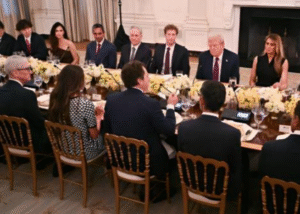The evolving dynamics of international politics are reshaping alliances in the Global South China Relations. Despite scrutiny of China’s geopolitical ambitions, countries across Asia, Africa, Latin America, and the Middle East continue to deepen their partnerships with Beijing. This trend reflects a growing focus on economic growth and strategic development over traditional Western political alignment.
Global South’s Pragmatic Approach
For decades, nations in the Global South China Relations have sought to diversify their economic and diplomatic partnerships. Western economies, often tied to stringent political conditions and slow-moving frameworks, contrast with China’s attractive, rapid, and flexible approach.
Through initiatives such as the Belt and Road Initiative (BRI), Beijing has financed critical infrastructure—highways, ports, and power plants—helping developing nations bridge long-standing gaps.
Leaders across Africa and Southeast Asia argue that rejecting Chinese cooperation would delay their development goals. Instead, they adopt a pragmatic approach: engaging with China in trade, investment, and technology while balancing Western ties where possible.
Western Concerns Over Chinese Influence
Western governments, particularly the United States and European Union, have raised concerns over China’s expanding influence:
- Debt Diplomacy: Critics claim Beijing’s loans trap nations in unsustainable debt cycles.
- Geopolitical Leverage: Funding major projects gives China strategic access to ports, logistics corridors, and digital networks.
- Erosion of Western Alliances: Stronger China-Global South China Relations ties weaken Western-led coalitions.
Despite these warnings, leaders in the Global South China Relations emphasize that Chinese investments often come with fewer political conditions compared to Western financing models.
Economic Imperatives Drive Alignment
The strength of Global South-China partnerships is largely economic. China is the largest trading partner for over 120 nations, cementing its role as a critical global hub.
- Africa: Over 6,000 km of railways and 10,000 km of roads built by China have fueled trade growth.
- Latin America: Trade with China surpassed $450 billion in 2024, outpacing the EU.
- South Asia & Middle East: Technology and energy partnerships drive digital infrastructure and renewable energy initiatives.
These economic ties create tangible benefits, making disengagement difficult despite Western pressure.
Political Realignment and Multipolarity
This growing acceptance of China signals a broader shift toward multipolarity. Many Global South nations are no longer choosing strict alignment with either the U.S. or China. Instead, they are embracing a development-focused neutrality, reminiscent of the Non-Aligned Movement (NAM) but adapted to modern economic realities.
Western campaigns—sanctions, trade restrictions, or diplomatic boycotts—are increasingly met with limited compliance.
The Role of Strategic Autonomy
Analysts highlight a rising trend of strategic autonomy, where nations engage with both Western and Chinese partners without deep dependency on either.
- India strengthens defense and technology ties with the U.S. while trading with China.
- Saudi Arabia & Gulf states diversify by partnering with China for energy while keeping Western security ties.
- African Union nations leverage Chinese infrastructure while seeking Western aid in healthcare and education.
This reflects a new diplomatic confidence among Global South leaders.
Looking Ahead: The Next Decade
Three key developments may shape the next decade:
- Increased South-South Cooperation: China will act as a catalyst for regional partnerships.
- Expansion of the BRICS Bloc: More nations may join as an alternative to Western-led frameworks.
- Policy Recalibration in the West: To stay relevant, Western nations must offer competitive investments without heavy political strings.
Conclusion
The Global South’s enduring ties with China illustrate a paradigm shift in global relations: development needs now outweigh political pressures. For many nations, economic modernization is linked to pragmatic partnerships with Beijing.
As the world moves toward multipolarity, the combination of the Global South’s assertive diplomacy and China’s expanding influence will remain a defining force in global geopolitics.









